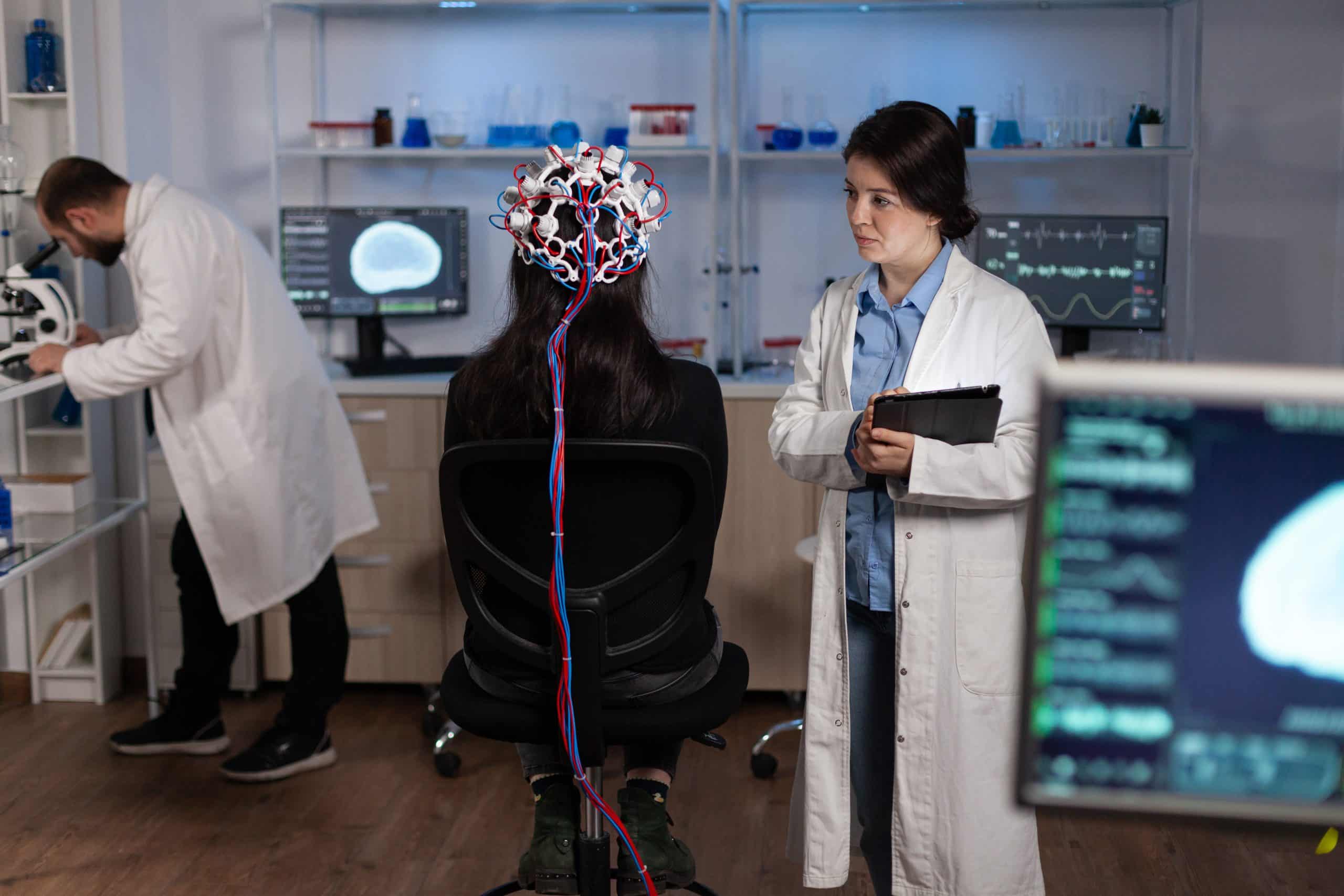The future of work: trends and predictions

In the ever-evolving landscape of today’s workforce, it is no longer enough to simply focus on the work of the present. The future of work holds a multitude of possibilities and challenges that companies and employees alike need to prepare for. The way people work is evolving, driven by digital technology and changing societal norms. Hybrid work models, advanced technology integration, and a focus on employee experience are all key trends that are shaping the future of work. These changes, while exciting, also bring numerous challenges for organizations and workers alike.
Hybrid Work Models
The COVID-19 pandemic has significantly accelerated the shift towards hybrid work models. A hybrid model combines remote and on-site work, providing flexibility for employees and enabling organizations to tap into a broader talent pool.
A lire en complément : The emergence of mobile e-commerce
Transitioning to this new way of working requires an understanding of the needs and motivations of your workforce. After all, successful hybrid work is not just about providing the necessary technology, but also about creating a culture that supports flexible work arrangements. You need to establish clear communication channels, trust within teams, and foster a sense of belonging and engagement for remote workers.
Businesses should also consider the potential impact of hybrid work models on productivity, employee engagement, talent attraction and retention, and organizational culture. By proactively addressing these factors, you can ensure that the transition to a hybrid model benefits both the organization and its employees.
A voir aussi : The importance of emotional intelligence in leadership
Technology Integration
Technology is a vital part of the future of work, as it enables remote work, drives productivity, and fosters innovation. However, the integration of technology into the workplace is not without its challenges.
Employees today are expected to adapt to new technologies at an unprecedented rate. This requires a commitment to continual learning and the development of digital skills. Companies, on their part, need to invest in training and support to help their employees make the most of these technologies.
Moreover, technology integration goes beyond merely providing employees with the necessary tools. It also involves rethinking workflows and processes to fully leverage the potential of digital technology. This could mean implementing new project management tools, using AI to automate routine tasks, or leveraging data analytics to make informed business decisions.
Focusing on Employee Experience
Employee experience is set to become a key focus in the future of work. This term refers to the journey an employee takes with a company, from recruitment to exit, and everything in between.
A positive employee experience is crucial for attracting and retaining talent in a competitive job market. It can also drive employee engagement and productivity, as employees who feel valued and supported are more likely to perform well.
To improve the employee experience, companies will need to invest in areas such as flexible work arrangements, professional development opportunities, wellness programs, and meaningful work. To do this effectively, it’s important to gather regular feedback from your employees and use this to inform your strategies.
Upskilling and Learning
The rapid pace of change in the digital age means that the skills needed in the workplace are constantly evolving. Therefore, lifelong learning and upskilling are becoming increasingly important.
Companies have a key role to play in this, by providing their employees with the resources and opportunities to develop new skills and expand their knowledge. This could mean offering online courses, mentoring programs, or in-house training sessions.
Investing in your employees’ learning and development not only benefits them professionally, but can also drive innovation and competitiveness within your organization. Furthermore, it can help to improve employee engagement and retention, as employees are likely to feel more valued if they see that their employer is invested in their growth and development.
The Role of People Management
In the future of work, the role of people management is set to become even more important. Managers will need to be able to lead teams that may be distributed across different locations, and to support their team members’ well-being and professional development.
Good people management involves clear communication, providing regular feedback, and fostering a positive team culture. It also means empowering your employees, by giving them the autonomy to make decisions and the support they need to succeed.
In an era of rapid change and uncertainty, the ability to navigate change and foster resilience will also be a key skill for managers. This involves being adaptable, staying positive in the face of challenges, and helping your team to do the same.
While these trends offer a glimpse of what the future may hold, the reality is likely to be even more complex and unpredictable. However, by staying informed of these trends and being prepared to adapt, you can ensure that your organization is well-positioned to thrive in the future of work.
Artificial Intelligence and Machine Learning
As digital transformation continues to progress, Artificial Intelligence (AI) and Machine Learning (ML) are set to redefine the future work landscape. These technologies are not just changing the way tasks are executed; they are also redefining roles, creating new opportunities and reshaping industries.
AI and ML have the potential to improve decision-making, automate routine tasks, and provide more personalized and efficient services. Their application ranges from customer service to data analysis, and from project management to product development. For instance, AI can be used to automate customer service through chatbots, while ML can help analyze large amounts of data to uncover insights and trends.
However, the rise of these technologies also presents challenges. There is a growing need for digital literacy and skills, including the ability to understand and work with AI and ML. Additionally, issues related to privacy, security, and ethics need to be addressed. For companies to effectively integrate these technologies, they must ensure their employees have the necessary skills and knowledge, and that ethical guidelines and policies are in place.
With AI and ML, the future work looks promising. But as with any technological advancement, careful implementation and management are key. Embracing these technologies opens a window to a host of possibilities, but it is also critical to consider the implications and prepare accordingly.
Diversity, Equity, and Inclusion
Promoting diversity, equity, and inclusion (DEI) is another key trend shaping the future of work. As our society becomes increasingly diverse, the workforce should reflect this diversity. Organizations that prioritize DEI not only support social justice but can also benefit from a broader range of perspectives, experiences, and ideas.
In the future work environment, business leaders will need to foster an inclusive culture where all employees feel valued, respected, and able to contribute fully. This involves promoting diversity in all its forms – not just in terms of race and gender, but also age, disability, religion, sexual orientation, socio-economic background, and other factors.
DEI also means ensuring equity, which involves providing all employees with equal opportunities for advancement and ensuring that workplace policies and practices do not disadvantage certain groups. To achieve this, organizations may need to implement measures such as flexible working arrangements, mentoring programs, and unconscious bias training.
In conclusion, the future of work is likely to be characterized by hybrid work models, increased use of technology, a focus on employee experience, upskilling and learning, the role of people management, AI and ML, and DEI. The trends predictions are clear: work will continue to evolve and adapt to the changing needs and expectations of workers and society.
However, the future of work also presents numerous challenges. Navigating these effectively will require a flexible and forward-thinking approach, a commitment to continual learning and adaptation, and an emphasis on supporting employees and fostering a positive, inclusive culture.
While the future of work may be uncertain and complex, one thing is clear: the organizations that are able to adapt and embrace these changes are the ones that will thrive. Therefore, it’s imperative for all stakeholders to stay informed about these work trends and be prepared to adjust accordingly. Remember, the future of work is not just about technological advancements, but also about creating a work environment that values human skills and experiences, promotes well-being and work-life balance, and fosters diversity, equity, and inclusion.
